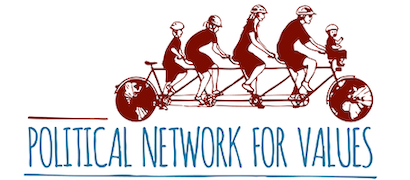The New York Commitment was integrated as part of the official documentation of the 78th session of the United Nations General Assembly; the text rescues the original meaning of the Universal Declaration of Human Rights (UDHR) and calls on the UN to be faithful to its founding purpose.
From now on, the New York Commitment should be cited as the Declaration of New York under document number A/78/639. You can read it here.
The New York Declaration was launched by the Political Network for Values (PNfV) during the V Transatlantic Summit, held at UN headquarters last November.
PNfV wanted to celebrate the 75th anniversary of the UDHR in an assertive way and so launched a global commitment that has been endorsed so far by more than 200 political and civic leaders from 40 countries.
“This is excellent news, as the Declaration can be cited as the official record of a broad consensus in favor of human dignity in the face of attempts to distort or violate fundamental rights and freedoms in the name of supposed new rights, which are neither part of the UDHR nor universally recognized,” explains Lola Velarde, Executive Director of PNfV.
What is the New York Declaration?
The New York Declaration gives visibility to a consensus that exists on all continents, very vast, on the need to affirm the dignity of the person and the fundamental values, especially life, family and freedoms, clearly enshrined in the UDHR.
The UDHR explicitly recognizes the right to life (Art. 3), the protection to be given to the family, motherhood and childhood (Art. 16, 23 and 25); the right of parents to choose the education of their children (Art. 26); freedom of thought, conscience, religion, opinion and expression (Art. 18 and 19); among others. Despite this clear record, signatory governments to the UDHR or even the UN itself promote initiatives that violate or distort these rights and marginalize their defenders.
The signatories of the Declaration commit themselves to forming a global alliance for human rights and fundamental freedoms as enshrined and universally recognized in the UDHR.
Work to establish environments conducive to the formation and stability of the family; to protect children, both before and after birth; and to respect the freedom of parents and legal guardians to provide the religious and moral education of their children in accordance with their own convictions.
They also undertake to promote respect for the various religions, ethical values, cultural backgrounds and philosophical convictions of the people worldwide, as well as the sovereignty of States in matters within their domestic jurisdiction.
The Official Record of a Broad Consensus
Although it is not a document drafted by the UN, it is part of the documentation of the last session of the General Assembly and, therefore, is the official record of a broad consensus, and as such it was communicated to the member countries. The request for inclusion was made by the Hungarian Foreign Ministry.
Velarde details that the “officialization” of the document allowed the UN Secretary-General to notify all other member states.
“The UN acknowledged receipt and officially forwarded it to all member states as an official document of the 75th Anniversary Commemorative Session of the UDHR, with a registry number that can be cited; it is formally taken up at the 78th session of the UN General Assembly, under Agenda Item 71 “Promotion and protection of human rights”, she explains.
The “officialization” of the New York Declaration comes at a good time, when those who defend life, family and freedoms are slandered and “canceled” as “anti-rights,” and marginalized from the debate or from the leadership of international organizations that seem to be hijacked by ideological agendas.
The Declaration is one more instrument in the hands of the defenders of true rights, with which they will be able to affirm that they are not alone and that their voice was heard at the last session of the United Nations, as announced by José Antonio Kast, president of PNfV, at the opening of the Transatlantic Summit.
“We are here to bring to the present, in its original sense, that agreement of 1948, we must return to the human person and, from there, guarantee his fundamental rights. It is precisely here, at the United Nations, that our voice needs to be heard. We stand for the basic principles that inspired the UDHR, they are timeless and transcendent,” he said.
“There are many of us who think this way and we are very active socially, politically and culturally, as we believe that dialogue can always take place. It is our duty to remind those who forget it or want to distort the original meaning of the UDHR,” he said.
If you are a political or civic leader and would like to sign the NY Declaration, you can do so here.



